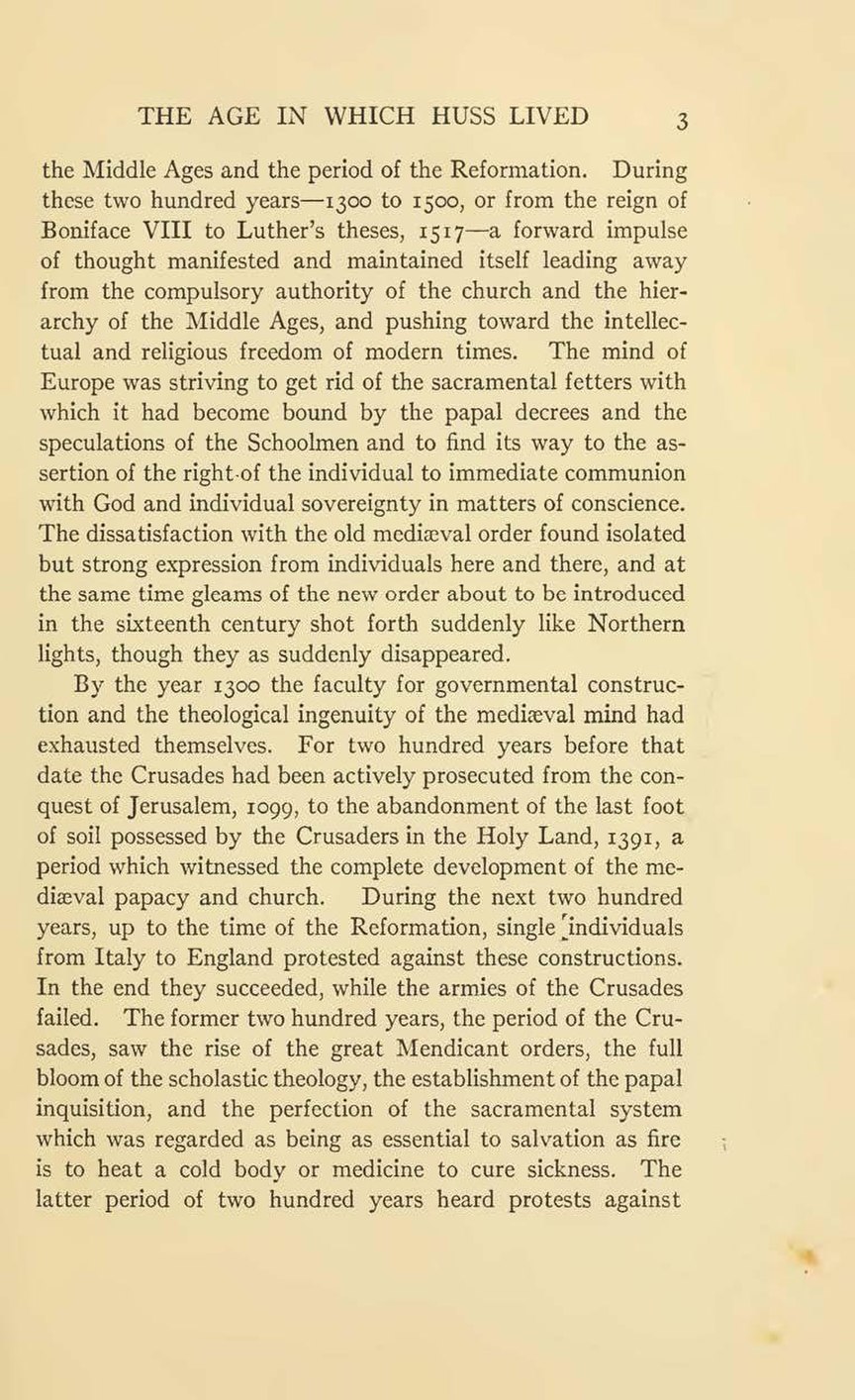the Middle Ages and the period of the Reformation. During these two hundred years—1300 to 1500, or from the reign of Boniface VIII to Luther’s theses, 1517—a forward impulse of thought manifested and maintained itself leading away from the compulsory authority of the church and the hierarchy of the Middle Ages, and pushing toward the intellectual and religious freedom of modern times. The mind of Europe was striving to get rid of the sacramental fetters with which it had become bound by the papal decrees and the speculations of the Schoolmen and to find its way to the assertion of the right-of the individual to immediate communion with God and individual sovereignty in matters of conscience. The dissatisfaction with the old mediæval order found isolated but strong expression from individuals here and there, and at the same time gleams of the new order about to be introduced in the sixteenth century shot forth suddenly like Northern lights, though they as suddenly disappeared.
By the year 1300 the faculty for governmental construction and the theological ingenuity of the mediæval mind had exhausted themselves. For two hundred years before that date the Crusades had been actively prosecuted from the conquest of Jerusalem, 1099, to the abandonment of the last foot of soil possessed by the Crusaders in the Holy Land, 1391, a period which witnessed the complete development of the mediaæval papacy and church. During the next two hundred years, up to the time of the Reformation, single individuals from Italy to England protested against these constructions. In the end they succeeded, while the armies of the Crusades failed. The former two hundred years, the period of the Crusades, saw the rise of the great Mendicant orders, the full bloom of the scholastic theology, the establishment of the papal inquisition, and the perfection of the sacramental system which was regarded as being as essential to salvation as fire is to heat a cold body or medicine to cure sickness. The latter period of two hundred years heard protests against
